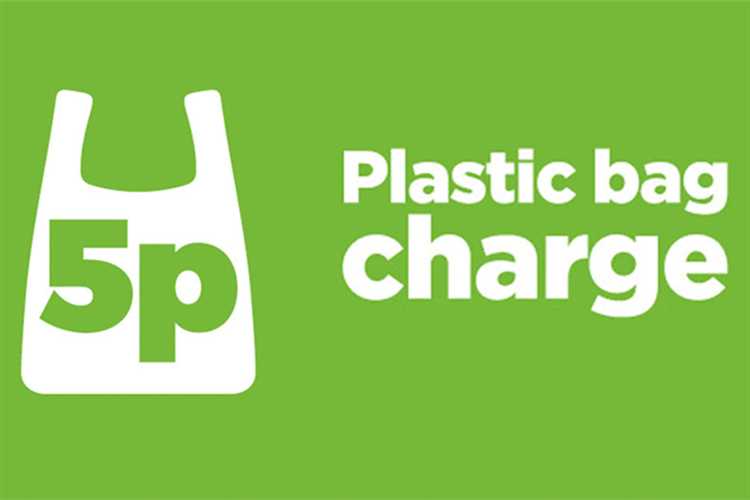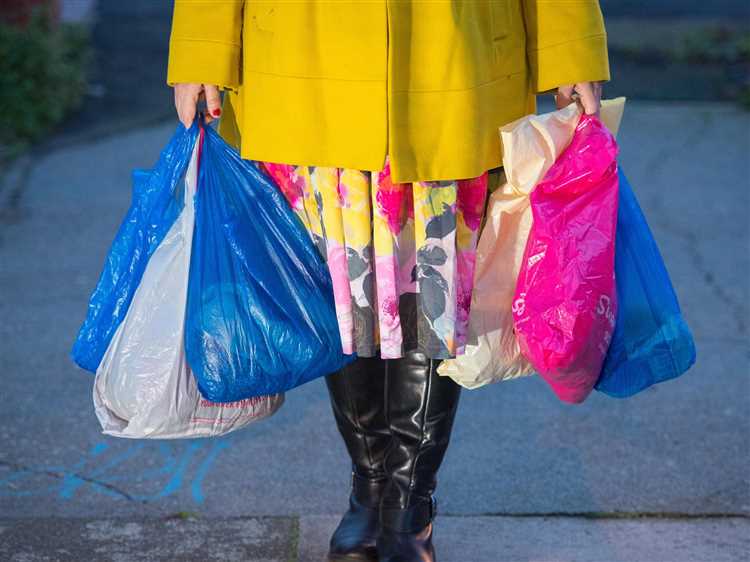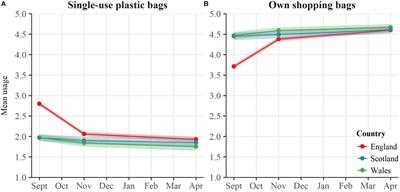In recent years, the issue of plastic waste has become a global concern, prompting governments around the world to take action. One of the most successful initiatives introduced in the UK to combat this problem is the plastic bag charge. Since its implementation in 2015, the plastic bag charge has had a significant impact on reducing plastic bag usage and raising awareness about the environmental consequences of single-use plastics.
The plastic bag charge, also known as the single-use carrier bag charge, requires retailers to charge customers a small fee for each plastic bag they use. The implementation of this charge was aimed at reducing the excessive consumption of single-use plastic bags, which often end up in landfills or as litter in our oceans and ecosystems. By introducing a financial deterrent, the charge encourages consumers to bring their own reusable bags and adopt more sustainable behaviors.
The success of the plastic bag charge in the UK is evident in the staggering reduction in plastic bag usage. In the first 6 months following its introduction, the number of single-use plastic bags distributed by major retailers decreased by over 80%. This amounted to a significant decrease in plastic waste, estimated at around 9 billion fewer bags being used. This decrease has had a positive environmental impact, reducing the amount of plastic pollution and its devastating effects on wildlife and ecosystems.
Furthermore, the plastic bag charge has also contributed to changing consumer behavior and raising awareness about the importance of reducing plastic waste. Many people have started to carry reusable bags with them, not only when grocery shopping but also in their day-to-day activities. This shift in consumer habits reflects a growing consciousness about the detrimental effects of plastic pollution and a desire to make more sustainable choices.
- Evaluation of the Plastic Bag Charge
- Reduction in Plastic Bag Usage
- Consumer Behavior Change
- Environmental Benefits
- Environmental Benefits
- Positive Impact on Marine Life
- Encouraging Sustainable Alternatives
- FAQ:
- What is the plastic bag charge in the UK?
- When was the plastic bag charge introduced?
- What was the purpose of implementing the plastic bag charge?
- Has the plastic bag charge been successful in reducing plastic bag usage?
- Are there any exemptions to the plastic bag charge?
- What was the plastic bag charge introduced in the UK?
- Why was the plastic bag charge introduced in the UK?
Evaluation of the Plastic Bag Charge

The implementation of the plastic bag charge in the UK has had a significant impact on reducing plastic bag usage and promoting more sustainable behavior. Various evaluations have been conducted to assess the effectiveness and success of the charge.
One key aspect of the evaluation has been the reduction in the number of single-use plastic bags distributed by retailers. Before the charge was introduced in 2015, the number of plastic bags distributed in the UK was estimated to be around 7.6 billion bags per year. After the charge, this number declined drastically, with the latest available data showing a reduction of approximately 95%.
In addition to the reduction in plastic bag usage, the charge has also led to positive environmental outcomes. As plastic bags are a major contributor to marine pollution, the decrease in their distribution has resulted in less plastic waste entering rivers and oceans. This has led to a decrease in the harm caused to marine ecosystems and wildlife.
Furthermore, the charge has also had economic benefits. Retailers have reported significant cost savings as a result of using fewer plastic bags. This has not only reduced their packaging costs but has also positively impacted their brand image as being environmentally conscious. Consumers have also adapted to the charge, with many opting to bring their own reusable bags, leading to a growth in the market for sustainable alternatives.
The charge has also had a positive impact on public awareness and attitudes towards plastic waste. It has sparked conversations and increased awareness about the environmental impact of single-use plastics. Surveys have shown that a majority of the public supports the charge, with many expressing their willingness to pay even higher fees for plastic bags, reflecting a shift in societal attitudes towards a more sustainable future.
Although the plastic bag charge has been successful in reducing plastic bag usage and raising awareness about plastic waste, there are still challenges that need to be addressed. Enforcement and monitoring of the charge’s implementation can be improved to ensure that all retailers are compliant. Additionally, the charge could be extended to other types of single-use plastics to further reduce their usage and promote the use of sustainable alternatives.
In conclusion, the evaluation of the plastic bag charge in the UK has highlighted its effectiveness in reducing plastic bag usage, promoting sustainable behavior, and raising public awareness about plastic waste. The charge has led to substantial reduction in plastic bag distribution, positive environmental outcomes, economic benefits for retailers, and a change in societal attitudes towards plastic consumption. Moving forward, continued evaluation and improvements in implementation can further enhance the success of the plastic bag charge and contribute to a more sustainable future.
Reduction in Plastic Bag Usage

The introduction of the plastic bag charge in the UK has had a significant impact on reducing plastic bag usage. Prior to the implementation of the charge, plastic bags were handed out freely by retailers, leading to a culture of convenience and wastefulness. However, the implementation of the charge has encouraged consumers to be more mindful of their consumption habits and to consider alternative options.
Statistical Data
| Year | Number of Single-Use Plastic Bags Distributed (in billions) |
|---|---|
| 2014 | 7.6 |
| 2015 | 6.1 |
| 2016 | 4.6 |
| 2017 | 1.7 |
Table 1: Number of single-use plastic bags distributed in the UK from 2014 to 2017.
The Impact of the Charge
The introduction of the plastic bag charge has not only led to a significant reduction in the number of single-use plastic bags distributed, but it has also raised awareness about the environmental consequences of plastic bag usage. The charge has acted as a deterrent for consumers, making them more conscious of their actions and the impact it has on the environment.
Consumer Behavior Change

Since the implementation of the charge, consumers have started adopting sustainable alternatives such as reusable shopping bags, canvas bags, and paper bags. This shift in consumer behavior has led to a decrease in the demand for single-use plastic bags and a corresponding decrease in their distribution.
Additionally, many retailers have introduced their own initiatives to encourage customers to bring their own bags or purchase reusable bags. This has further contributed to the reduction in plastic bag usage.
Environmental Benefits
The reduction in plastic bag usage has had numerous environmental benefits. Plastic bags are a significant contributor to pollution, particularly in marine environments where they pose a threat to marine life. By reducing the number of plastic bags in circulation, the charge has helped to mitigate the impact of plastic bag pollution and protect ecosystems.
Furthermore, the reduction in plastic bag usage has resulted in a decrease in the amount of plastic waste generated, leading to less landfill space being occupied by plastic bags. This has positive implications for waste management and encourages a more sustainable approach to resource consumption.
In conclusion, the plastic bag charge in the UK has been successful in reducing plastic bag usage and encouraging a shift towards more sustainable alternatives. The charge has had a significant impact on consumer behavior and has raised awareness about the environmental consequences of plastic bag usage. The reduction in plastic bag distribution has resulted in environmental benefits, including decreased pollution and improved waste management.
Environmental Benefits
The introduction of the plastic bag charge in the UK has had numerous environmental benefits. One of the main advantages is the reduction in plastic bag usage. Prior to the charge, it was estimated that over 7 billion plastic bags were handed out annually by large retailers. However, since the charge was implemented, there has been a significant decrease in the number of plastic bags being used. This has led to a reduction in the amount of plastic waste generated and subsequently a decrease in the negative impact on the environment.
In addition to reducing plastic waste, the charge has also contributed to a decrease in pollution. Plastic bags, when not disposed of properly, can easily end up in waterways and natural habitats. This not only poses a threat to wildlife but also affects the overall ecosystem. By discouraging the use of plastic bags through the charge, there has been a significant reduction in plastic bag litter. This has helped to preserve the natural beauty of the UK’s landscapes and protect the wildlife that inhabit them.
Positive Impact on Marine Life
Marine life has also greatly benefited from the plastic bag charge. Plastic bags are a major marine pollutant, with many animals mistaking them for food. This can lead to issues such as ingestion, entanglement, and suffocation. With fewer plastic bags in circulation, the risk to marine life has been significantly reduced. This has helped to safeguard the health and well-being of various marine species, including fish, turtles, and seabirds.
Encouraging Sustainable Alternatives
The plastic bag charge has also encouraged the use of sustainable alternatives. Many consumers have opted to bring their own reusable bags, reducing the demand for single-use plastic bags. This shift in consumer behavior has not only decreased waste but has also promoted a culture of sustainability. By making a small change in their shopping habits, individuals can contribute to a more environmentally friendly future.
In conclusion, the plastic bag charge in the UK has had a positive environmental impact. It has reduced plastic bag usage, decreased pollution, protected marine life, and encouraged the use of sustainable alternatives. By continuing to promote responsible consumer choices, we can further improve the state of our environment and create a more sustainable society.
FAQ:
What is the plastic bag charge in the UK?
The plastic bag charge in the UK is a government policy that requires retailers to charge customers for single-use plastic bags.
When was the plastic bag charge introduced?
The plastic bag charge was introduced in England in October 2015, with Scotland, Wales, and Northern Ireland following suit in subsequent years.
What was the purpose of implementing the plastic bag charge?
The purpose of implementing the plastic bag charge was to reduce the usage of single-use plastic bags, promote reusable alternatives, and minimize environmental impact.
Has the plastic bag charge been successful in reducing plastic bag usage?
Yes, the plastic bag charge has been successful in reducing plastic bag usage. In 2014, over 7.6 billion single-use bags were used in the UK. This number dropped to around 1.1 billion in 2019.
Are there any exemptions to the plastic bag charge?
Yes, there are exemptions to the plastic bag charge. Bags used for certain items, such as raw meat or prescription medicine, are usually exempt from the charge.
What was the plastic bag charge introduced in the UK?
The plastic bag charge was introduced in the UK in 2015 and required customers to pay a minimum of 5 pence for each single-use plastic bag they used when shopping.
Why was the plastic bag charge introduced in the UK?
The plastic bag charge was introduced in the UK as a way to reduce the usage and impact of single-use plastic bags on the environment. It aimed to encourage people to bring their own reusable bags and reduce plastic waste.